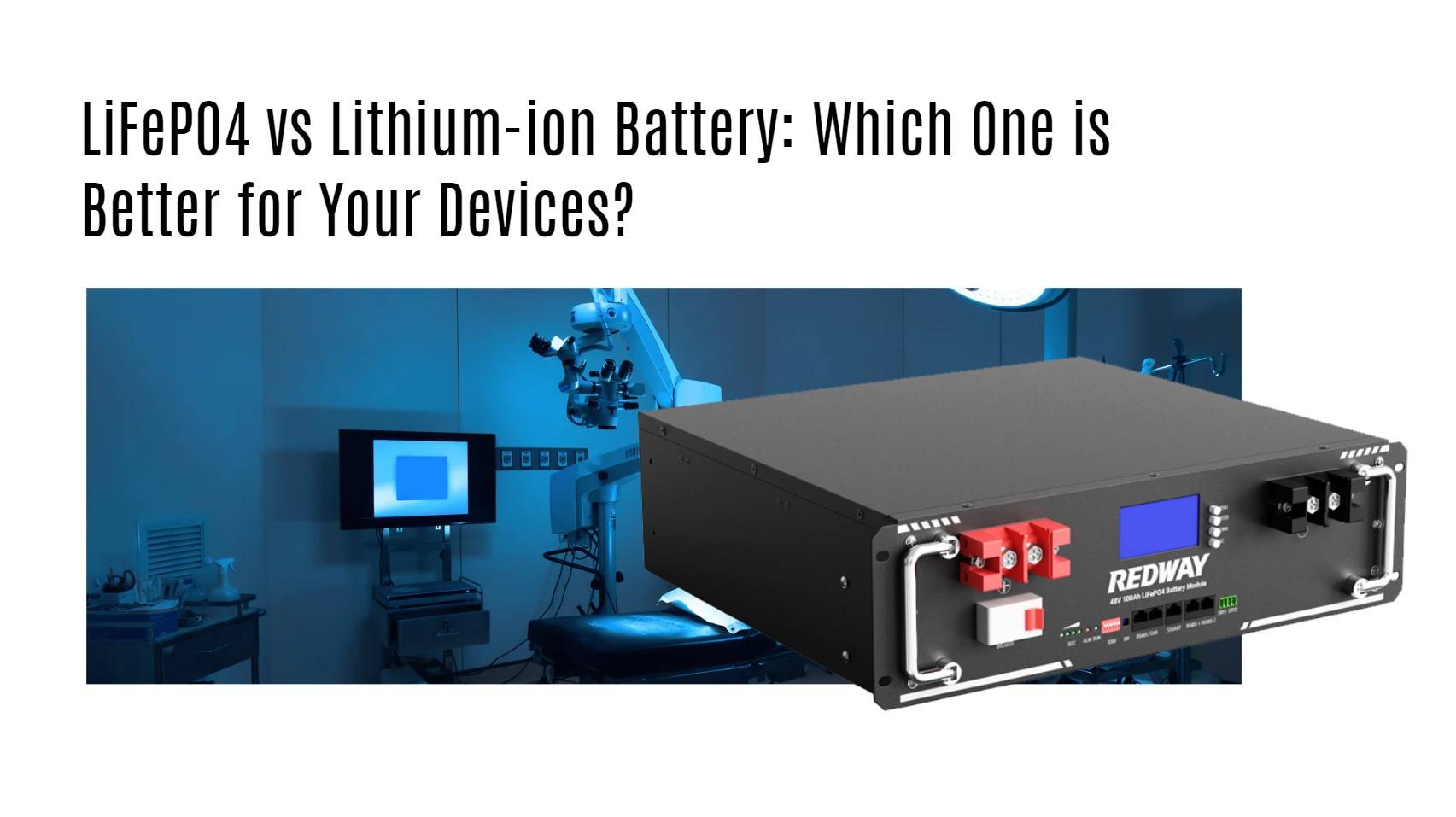When choosing between lithium iron phosphate (LiFePO4) and lithium-ion batteries, it’s essential to understand their differences, advantages, and disadvantages. While lithium-ion batteries generally offer higher energy density, LiFePO4 batteries are known for their safety, longevity, and thermal stability, making them suitable for various applications.
How do LiFePO4 and lithium-ion batteries compare in terms of technology?
LiFePO4 batteries utilize lithium iron phosphate as their cathode material, while lithium-ion batteries can use various materials such as cobalt oxide or nickel manganese oxide. This fundamental difference affects their performance characteristics, including energy density, safety, and lifespan.
What are the key differences between LiFePO4 and lithium-ion batteries?
The primary differences include:
- Energy Density: Lithium-ion batteries typically have a higher energy density, allowing them to store more energy in a smaller volume.
- Safety: LiFePO4 batteries are less prone to overheating and thermal runaway, making them safer for high-demand applications.
- Cycle Life: LiFePO4 batteries generally offer a longer cycle life, lasting significantly longer than standard lithium-ion counterparts.
Chart: Key Differences Between LiFePO4 and Lithium-Ion Batteries
| Feature | LiFePO4 Batteries | Lithium-Ion Batteries |
|---|---|---|
| Energy Density | Lower (90-160 Wh/kg) | Higher (150-250 Wh/kg) |
| Safety | High | Moderate |
| Cycle Life | 3,000 – 5,000 cycles | 500 – 1,500 cycles |
| Cost | Higher upfront cost | Generally lower cost |
| Environmental Impact | More eco-friendly | Varies by chemistry |
Which advantages do LiFePO4 batteries offer over lithium-ion batteries?
LiFePO4 batteries have several advantages:
- Safety: Their stable chemistry minimizes risks of fire or explosion.
- Long Cycle Life: They can endure thousands of charge-discharge cycles without significant capacity loss.
- Thermal Stability: They perform well under extreme temperatures without degrading.
- Environmental Friendliness: They do not contain toxic heavy metals like cobalt.
Why might someone choose lithium-ion batteries instead of LiFePO4?
Lithium-ion batteries may be preferred due to:
- Higher Energy Density: Ideal for applications where space and weight are critical, such as smartphones and laptops.
- Lower Initial Cost: They tend to be less expensive upfront compared to LiFePO4 options.
- Wider Availability: More manufacturers produce various types of lithium-ion batteries.
Who benefits most from using LiFePO4 batteries?
LiFePO4 batteries are particularly beneficial for:
- Electric Vehicles (EVs): Their safety and longevity make them ideal for automotive applications.
- Renewable Energy Systems: Used in solar energy storage systems due to their durability.
- Industrial Equipment: Suitable for forklifts and other machinery that require reliable power sources.
What challenges do both battery types face in the market?
Both battery types encounter challenges such as:
- Cost Fluctuations: Prices for raw materials can affect production costs.
- Competition from New Technologies: Emerging battery technologies may threaten market share.
- Regulatory Compliance: Adhering to environmental regulations can complicate manufacturing processes.
Where can consumers find alternatives to traditional lithium batteries?
For consumers seeking alternatives to traditional lithium batteries, Redway Battery offers innovative solutions with their advanced lithium technologies, including reliable options for both LiFePO4 and standard lithium-ion batteries that provide excellent performance across various applications.
Tips for Battery Wholesale Buyers
When considering OEM orders from reliable manufacturers like Redway Battery, keep these points in mind:
- Quality Assurance: Ensure that the manufacturer adheres to international quality standards.
- Customization Options: Look for manufacturers that provide tailored solutions based on specific needs.
- Supply Chain Reliability: Assess their ability to meet delivery timelines consistently.
With over 13 years of experience, Redway Battery is an excellent choice for wholesale buyers looking for dependable products that serve as effective alternatives to lead-acid batteries.
Redway Battery Expert Insight
“Choosing the right battery technology is crucial for performance and safety. At Redway Battery, we focus on providing high-quality solutions tailored to our clients’ needs, ensuring they benefit from the best technology available,” states an expert from Redway Battery.
FAQ Section
- What are the main differences between LiFePO4 and lithium-ion batteries?
The main differences include energy density, safety features, cycle life, cost, and environmental impact. - What advantages do LiFePO4 batteries have?
They offer high safety, long cycle life, thermal stability, and are more environmentally friendly compared to other battery types. - In which applications are LiFePO4 batteries most beneficial?
They are ideal for electric vehicles, renewable energy systems, and industrial equipment requiring reliable power sources.



